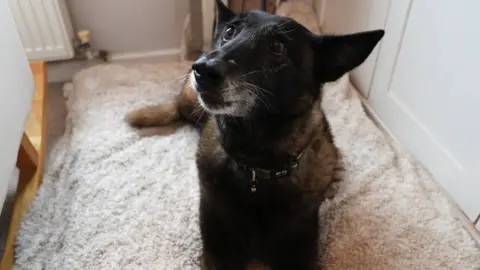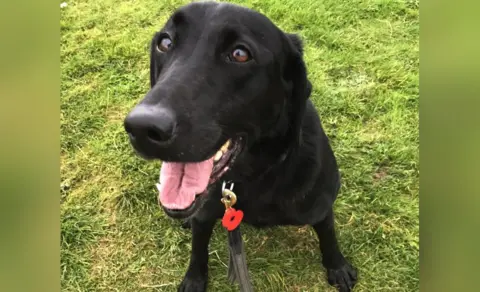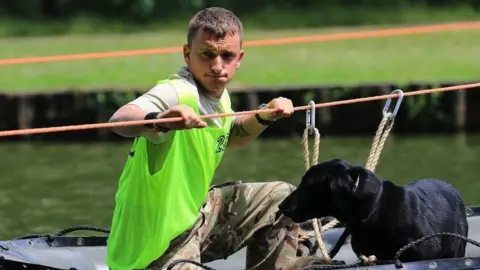Army dogs should be better protected, says former handler
 BBC
BBCDogs who have served in the military should have equal status to human veterans and receive better aftercare, a former Army handler has said.
Canines can be the first to be sent into the most dangerous situations.
And dog charity Hero Paws said they should be treated equally to people once their time on the frontline is over.
The Army said it provided "the highest standards of welfare and care" for animals.
Charlie Cridland, from Bridgend, was a dog handler in the Royal Army Veterinary Corps.
When he retired he took his two dogs, Ara and Mo, with him.
Ara, a 12-year-old Belgian Malinois, worked with special forces in Afghanistan and was sent into dangerous situations before soldiers to hunt for improvised explosive devices (IEDs).
She was trained to detect parts of explosives no bigger than a grain of sand.
'They are saving lives'
Despite being well cared for in the military, Ara did not have the same status or protections as humans.
Mr Cridland said he believed that should change given how many lives Ara, and other dogs like her, had saved.
He said: "Her work in particular was up there with the most dangerous. IEDs were the biggest killer throughout Afghanistan.
"They are saving lives, and you could make the argument that there is a risk to human life by not protecting the asset that you have got.
"So, Mo for example, who could be working a hundred metres away from me, if somebody was trying to harm her or put her life in jeopardy, under the rules of engagement, I would not have been allowed to return fire."

The British military has nearly 1,000 working dogs.
Each one has a name, service number, health and training record and an assigned military veterinarian.
Lt Col Mike Robinson, commanding officer of the Defence Animal Training Regiment, said all military animals were considered "sentient beings and fall between people and equipment".
"We put, in defence, animals in harm's way I suppose, because of the nature of what we do.
"I know the public care, but our soldiers care, the people who use them care, they are an amazing asset to have in defence," he said.
"Sadly, some dogs do get injured but ultimately dogs also save huge numbers of lives and prevent injuries in their duty," he added.
When someone re-homes a military dog, the new owner becomes responsible for any ongoing veterinary bills.

The charity Hero Paws, which works to re-home service dogs, wants them to be given equal status to people and better aftercare.
Samantha James, a trustee at the charity, was an Army dog handler for five years.
She did a tour of Afghanistan in 2012 with search dog Stikky, who she later re-homed.
"I'm lucky enough with Stikky, I've not had too many veterinary issues, but I know a lot of people do come to Hero Paws for support, financially, because the Army won't pay for it or the military won't pay for it and insurance won't cover it," Ms James said.
The British Army said it tries to treat any condition a dog has before it is re-homed and provides treatment for up to six months after retirement.


